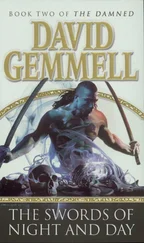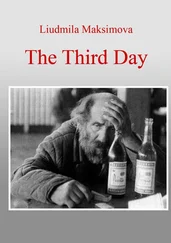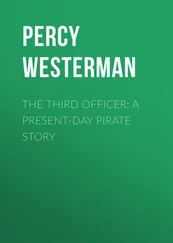David Epperson - The Third Day
Здесь есть возможность читать онлайн «David Epperson - The Third Day» весь текст электронной книги совершенно бесплатно (целиком полную версию без сокращений). В некоторых случаях можно слушать аудио, скачать через торрент в формате fb2 и присутствует краткое содержание. Жанр: Фантастика и фэнтези, на английском языке. Описание произведения, (предисловие) а так же отзывы посетителей доступны на портале библиотеки ЛибКат.
- Название:The Third Day
- Автор:
- Жанр:
- Год:неизвестен
- ISBN:нет данных
- Рейтинг книги:3 / 5. Голосов: 1
-
Избранное:Добавить в избранное
- Отзывы:
-
Ваша оценка:
- 60
- 1
- 2
- 3
- 4
- 5
The Third Day: краткое содержание, описание и аннотация
Предлагаем к чтению аннотацию, описание, краткое содержание или предисловие (зависит от того, что написал сам автор книги «The Third Day»). Если вы не нашли необходимую информацию о книге — напишите в комментариях, мы постараемся отыскать её.
The Third Day — читать онлайн бесплатно полную книгу (весь текст) целиком
Ниже представлен текст книги, разбитый по страницам. Система сохранения места последней прочитанной страницы, позволяет с удобством читать онлайн бесплатно книгу «The Third Day», без необходимости каждый раз заново искать на чём Вы остановились. Поставьте закладку, и сможете в любой момент перейти на страницу, на которой закончили чтение.
Интервал:
Закладка:
“Hurry up,” I said. “Let’s get out of here.”
I gave them both another shove, and we pressed forward in silence, with Markowitz still wiping the spittle from his mouth. It wasn’t until we had almost reached the tail end of our column that Bryson finally spoke.
“What did you give them, cyanide?”
“Sufentanil,” I replied. “It’s a synthetic opioid; like morphine, only much stronger.”
Bryson glanced back, as did I. Both victims’ heads had dropped.
“Are they dead?” he asked.
I shrugged. The dosage I had given them would keep them unconscious for the next three to four hours. I could only hope nature would take its course by then.
At least I had tried.
When we got back to the wagon, our party remained visibly shaken. Those of us who hadn’t grown up Catholic had all, at one point or another, made the tourist circuits through the cathedrals of Europe. The crucifix looked nothing at all like what we had just seen.
Lavon closed his eyes, hoping to banish the image from his memory, though I knew he would never completely succeed. He mumbled something to Sharon about the hymn-writer having it wrong — that there was nothing wondrous about any of this — but she only gave a weak half nod and grunted in reply.
His words struck me as a restatement of the obvious, though I wasn’t quite sure what he was talking about and decided not to press the issue.
Lavon finally explained that that the cross had not become the outward, visible symbol of Christianity until the latter half of the fourth century — after at least a generation had passed who had been unfortunate enough to see one for real.
The logic of that was not difficult to comprehend. Nor would any of us find it hard to refute the idea, still bandied about by fringe conspiracy theorists, that Jesus had somehow survived his execution.
For one thing, I doubt he would have wanted to.
Hospitals would run out of sutures before the wounds from that type of flogging could be sewn up, and without a massive infusion of antibiotics, infection would have killed him within a month anyway — a month in which he would have known nothing but the most intense and terrible pain.
Lavon spoke quietly. “Now we know what Paul meant by the stumbling block.”
Sharon just stared ahead. “I never really understood until now.”
“You couldn’t have, could you?”
She shook her head. “No.”
“Understand what?” asked Markowitz.
“In his letter to the church in Corinth, Paul wrote about people not accepting Christ’s message because of the stumbling block of the cross,” she replied.
“In other words,” said Lavon, “how could a Lord, the Son of God, die in such a horrible and degrading manner?”
I couldn’t argue with that.
For the next few minutes, we walked forward in silence. In fact, none of us even noticed that we had passed through the Damascus Gate and into the city itself.
“Who do you think those men were?” Bryson finally asked. “I glanced up at the sign above their heads, but I couldn’t read it.”
I had seen it, too. A wooden placard described their crimes in three languages, none of which I could understand.
“The Greek word is lestes , answered Lavon. “Literally, it means ‘bandit,’ but in our world, we’d pick a different term — ‘terrorist,’ probably. Not just an ordinary brigand, but one acting from a political or religious motive.”
“Zealots, then?” asked Markowitz. “Jews fighting the Romans, like the ones we saw earlier today?”
Lavon nodded. “Probably.”
Chapter 22
A few minutes later, we got another reminder of the seething cauldron into which we had inserted ourselves.
Our column passed through a narrow alleyway that ran between a continuous row of three story stone buildings. A small boy — he couldn’t have been older than five or six — stood in a third floor window. Sharon looked up at him and waved.
The kid giggled and waved in return for a brief moment before we saw a hand reach out and jerk him back into the apartment. We heard shouting, and though we could not understand the words, the scolding tone was not hard to interpret.
The boy protested, and moments later we cringed as we heard the impact of a slap. The child bawled for a few seconds before a second slap brought about a pitiful whimper.
We looked back to see a weather-beaten old woman step up to the window and make a rude gesture, before spitting in a truculent display of loathing and disgust.
Bergfeld turned to Lavon, her expression uncomprehending.
“All I did was wave.”
Lavon just shook his head, as did I.
For all we knew, that woman’s son was one of the poor unfortunates writhing in agony outside the city gate. Perhaps her husband, or father, or brothers had lost their lives fighting the Romans.
Or maybe her family had been driven off the land by the crushing burden of taxation; or worse, her inability to pay the ruthless and corrupt tax farmers may have forced her to sell a daughter into a life of degradation and slavery.
The possibilities were endless as they were terrible.
***
We didn’t have long to reflect, though. A minute later, we turned another corner and entered a broad plaza. A ten-story crenellated wall on the opposite side dominated the square. Archers stood at the top, guarding their colleagues’ entry.
“It’s called the Antonia,” said Lavon. “The first Herod built this fortress about 75 years ago and named it after his patron Mark Antony.”
That seemed odd.
“I thought Antony lost,” I said.
“He did,” Lavon replied, “but Herod had a unique ability to curry favor with whoever held power in Rome. Unlike his contemporaries, he never sidestepped the fact he had chosen the wrong side. Instead, he told Augustus that he had had served Antony proudly, but would now serve his new master with equal devotion.”
“Obviously it worked,” said Bryson.
“Yeah,” he replied, “though I’m not sure Augustus had any other good candidates for the job. Despite his nasty personal reputation, Herod had demonstrated that he could keep order in a troublesome part of their world, which is what the Romans really cared about at the time.”
“Our son of a bitch,” I muttered.
Markowitz and Bergfeld eyed me strangely, but I didn’t reply. President Eisenhower had made that crack about a brutal Central American dictator who had proven adept at fighting the Communists. It was an era they were too young to recall.
“I thought a Roman governor ran Jerusalem,” said Bryson.
Lavon nodded. “One does now, though when Herod died, his kingdom was divided among three of his sons. The trouble was, the one who got Jerusalem inherited all of his father’s cruel bloody-mindedness without a speck of his administrative ability. After a few years, the Romans got rid of him and installed their own man.”
***
The soldiers we traveled with, however, couldn’t have cared less about governors. When they saw the fortress, the men spontaneously surged forward, like horses returning to the barn after a long, tiring ride.
The gate opened from the inside, and we pressed on until we halted near the center of an open courtyard about the size of a football field. I glanced up and counted eight rings of windows lining the walls, along with stone-lined passages into the interior.
“It’s bigger than it looked in those drawings,” said Bergfeld.
Lavon also seemed surprised by the scale of the place.
“The artists’ renditions don’t do it justice,” he said.
He steered our attention to the battlements. “At least this part is as Josephus described it. A few modern scholars have argued that the fort contained only one main battlement, but here, you can see that there are four; one at each corner.”
Читать дальшеИнтервал:
Закладка:
Похожие книги на «The Third Day»
Представляем Вашему вниманию похожие книги на «The Third Day» списком для выбора. Мы отобрали схожую по названию и смыслу литературу в надежде предоставить читателям больше вариантов отыскать новые, интересные, ещё непрочитанные произведения.
Обсуждение, отзывы о книге «The Third Day» и просто собственные мнения читателей. Оставьте ваши комментарии, напишите, что Вы думаете о произведении, его смысле или главных героях. Укажите что конкретно понравилось, а что нет, и почему Вы так считаете.












